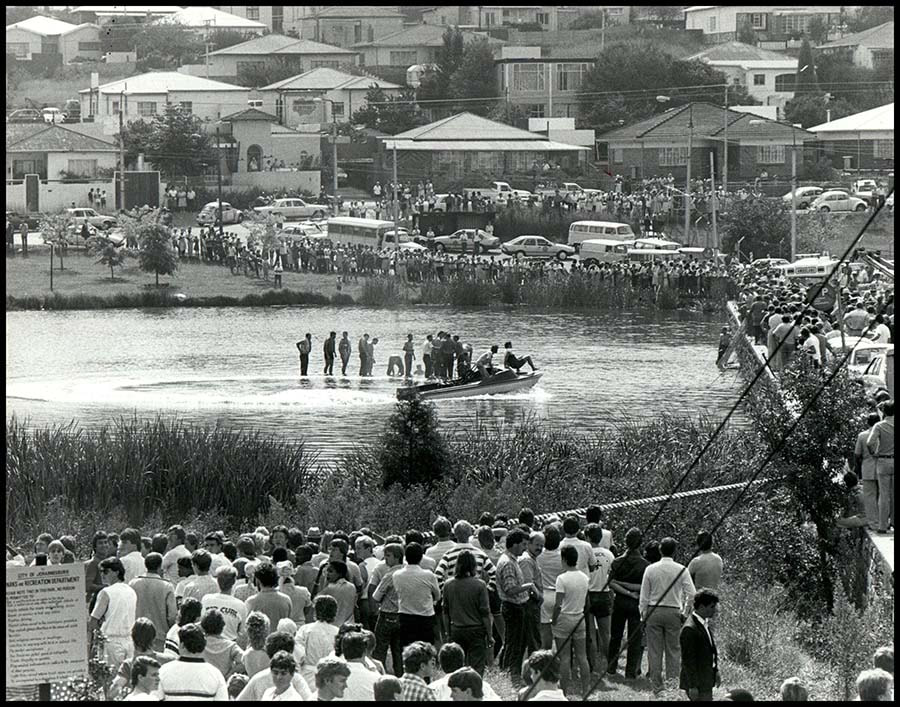- Home
- Magazines
-
Newsletters
- 19 July 2024
- 12 July 2024
- 5 July 2024
- 28 June 2024
- 14 June 2024
- 7 June 2024
- 31 May 2024
- 24 May 2024
- 17 May 2024
- 10 May 2024
- 3 May 2024
- 26 April 2024
- 19 April 2024
- 12 April 2024
- 22 March 2024
- 15 March 2024
- 8 March 2024
- 1 March 2024
- 23 February 2024
- 16 February 2024
- 9 February 2024
- 26 January 2024
- 19 January 2024
- 12 January 2024
- 22 December 2023
- 1 December 2023
- 24 November 2023
- 10 November 2023
- 3 November 2023
- 27 October 2023
- 20 October 2023
- 13 October 2023
- 6 October 2023
- 29 September 2023
- 22 September 2023
- 15 September 2023
- 8 September 2023
- 25 August 2023
- 18 August 2023
- 11 August 2023
- 4 August 2023
- 28 July 2023
- 21 July 2023
- 14 July 2023
- 7 July 2023
- 30 June 2023
- 23 June 2023
- 15 June 2023
- 2 June 2023
- 26 May 2023
- 19 May 2023
- 12 May 2023
- 5 May 2023
- 28 April 2023
- 21 April 2023
- 14 April 2023
- 6 April 2023
- 31 March 2023
- 24 March 2023
- 17 March 2023
- 10 March 2023
- 3 March 2023
- 24 February 2023
- 17 February 2023
- 10 February 2023
- 3 February 2023
- 27 January 2023
- 13 January 2023
- 22 December 2022
- 15 December 2022
- 9 December 2022
- 2 December 2022
- 25 November 2022
- 18 November 2022
- 11 November 2022
- 4 November 2022
- Advertising
- Subscribe
- Articles
-
Galleries
- AOSH Firexpo 2024
- Midvaal Fit to Fight Fire 2024
- WoF KNP 2023 Gallery
- TFA 2023 Gallery
- DMISA Conference 2023
- ETS 2023 Gallery
- Drager Fire Combat and Rescue Challenge 2023
- AOSH Firexpo 2023
- Midvaal Fit to Fight Fire
- WC IFFD 2023
- NMU 13th Fire Management Symposium 2022
- JOIFF Africa Conference 2022
- ETS 2022 Gallery
- TFA 2022 Gallery
- IFFD 2018
- SAESI
- TFA
- WRC 2018
- WRC 2019
- A-OSH/Securex
- IFE AGM 2019
- ETS Ind Fire Comp Nov 2019
- ETS Challenge 2021
- Drager launch
- Drager Fire Combat and Rescue Challenge 2022
- TFA
- Contact
- Home
- Magazines
-
Newsletters
- 19 July 2024
- 12 July 2024
- 5 July 2024
- 28 June 2024
- 14 June 2024
- 7 June 2024
- 31 May 2024
- 24 May 2024
- 17 May 2024
- 10 May 2024
- 3 May 2024
- 26 April 2024
- 19 April 2024
- 12 April 2024
- 22 March 2024
- 15 March 2024
- 8 March 2024
- 1 March 2024
- 23 February 2024
- 16 February 2024
- 9 February 2024
- 26 January 2024
- 19 January 2024
- 12 January 2024
- 22 December 2023
- 1 December 2023
- 24 November 2023
- 10 November 2023
- 3 November 2023
- 27 October 2023
- 20 October 2023
- 13 October 2023
- 6 October 2023
- 29 September 2023
- 22 September 2023
- 15 September 2023
- 8 September 2023
- 25 August 2023
- 18 August 2023
- 11 August 2023
- 4 August 2023
- 28 July 2023
- 21 July 2023
- 14 July 2023
- 7 July 2023
- 30 June 2023
- 23 June 2023
- 15 June 2023
- 2 June 2023
- 26 May 2023
- 19 May 2023
- 12 May 2023
- 5 May 2023
- 28 April 2023
- 21 April 2023
- 14 April 2023
- 6 April 2023
- 31 March 2023
- 24 March 2023
- 17 March 2023
- 10 March 2023
- 3 March 2023
- 24 February 2023
- 17 February 2023
- 10 February 2023
- 3 February 2023
- 27 January 2023
- 13 January 2023
- 22 December 2022
- 15 December 2022
- 9 December 2022
- 2 December 2022
- 25 November 2022
- 18 November 2022
- 11 November 2022
- 4 November 2022
- Advertising
- Subscribe
- Articles
-
Galleries
- AOSH Firexpo 2024
- Midvaal Fit to Fight Fire 2024
- WoF KNP 2023 Gallery
- TFA 2023 Gallery
- DMISA Conference 2023
- ETS 2023 Gallery
- Drager Fire Combat and Rescue Challenge 2023
- AOSH Firexpo 2023
- Midvaal Fit to Fight Fire
- WC IFFD 2023
- NMU 13th Fire Management Symposium 2022
- JOIFF Africa Conference 2022
- ETS 2022 Gallery
- TFA 2022 Gallery
- IFFD 2018
- SAESI
- TFA
- WRC 2018
- WRC 2019
- A-OSH/Securex
- IFE AGM 2019
- ETS Ind Fire Comp Nov 2019
- ETS Challenge 2021
- Drager launch
- Drager Fire Combat and Rescue Challenge 2022
- TFA
- Contact
|
24 February 2023
|
FRI Magazine: Post-traumatic stress disorder (PTSD) – what is it? By Mike Webber
We will be sharing some technical articles from Fire and Rescue International magazine on a weekly basis with our readers to assist in technology transfer. This will hopefully create an increased awareness, providing you with hands-on advice and guidance. All our magazines are available free of charge in PDF format on our website and online at ISSUU. We also provide all technical articles as a free download in our article archive on our website. This week’s article: Post-traumatic stress disorder (PTSD) – what is it? written by Mike Webber, counselling psychologist
Post-traumatic stress disorder (PTSD) – what is it?
By Mike Webber, counselling psychologist
In this first part of a series of four articles on Post-traumatic stress disorder (PTSD), we’re going to describe what it is (and what it’s not), followed by a further two papers on its treatment and prevention (yes, it can to some extent be prevented). PTSD is not news. It’s been described and researched by medical and psychology researchers for over 100 years now. However, this research has focused on military veterans and the subject is still, unfortunately, the elephant in the fire station here in South Africa.
PTSD is something that happens in wars. South African troops came back from border duty ‘Bossies’. Vietnam veterans had ‘battle fatigue’. World War II veterans had ‘shell shock’. Some military hospital trains had wards for the ‘mentally injured’. In the South African fire services, we hadn’t heard of it or thought that we could suffer from it. Until around 13h15 on Wednesday, 27 March 1985.
Case study
Nobody came away from the Westdene bus disaster in 1985 the same person as they’d woken up that morning. First responders arrived poorly equipped to deal with an underwater rescue. Ambulance crews, the fire crews from Brixton and Roosevelt Park fire stations, officers from Johannesburg Fire and Rescue headquarters, instructors from Brixton Training School and fire prevention officers frantically tried to dive down to the windows and bus door stripped down to their underwear. Some tried using breathing apparatus (BA) sets to stay down longer. The underwater visibility was zero. Although BA sets do work to limited depth underwater, their curved visors cause double vision underwater. Children brought to the surface were carried off the wall by staff carrying them on blankets as they literally ran towards ambulances and the four helicopters flying backwards and forwards to and from the JG Strydom Hospital. Too many children, too little time, too few hands, too little coordination and too little suitable equipment. The rescuers were frantic. Their emotions ranged from desperation to anger. They worked like Trojans. But they couldn’t achieve what they were trying for - a successful rescue.
After the incident no-one was the same. Many responders became depressed, demotivated and in fire service terms ‘NAAFI’. Most became very irritable and angry a lot of the time. Many relationships broke up. Many resorted to self medicating with over-the-counter medications and excessive alcohol consumption. Many avoided any reminders of the incident, including the scene, press reports, sounds or sights that reminded them of the incident. What happened?
What is PTSD?
The development of PTSD requires exposure to an event that is exceptionally threatening or catastrophic. It frequently involves a threat of death or serious injury or being witness to instances of death, disfigurement serious injury or violence. It is also often accompanied by feelings of helplessness or disempowerment. This is what the crews at the Westdene bus disaster experienced. It was an event that fell outside the realm of what fire and rescue crews would normally face. They felt disempowered. They felt that they couldn’t do enough. They were surrounded by dead children. They couldn’t resuscitate them.
We know what causes PTSD. It’s not being weak. It’s not malingering. Whilst this writer has come across one or two instances where fire fighters have complained of ‘trauma’ after attending a simple vehicle rescue, which certainly does beg their suitability for rescue work, everybody has a breaking point. It’s not being ‘unsuitable for the service’ after an event like the Westdene bus disaster. Changes in certain brain structures and the way that the brain processes information occur during exposure to an exceptionally catastrophic or threatening event. The medial hypothalamus in the brain starts to process information differently. The hypothalamic-pituitary-adrenal (HPA) axis that is responsible for autonomic sympathetic nervous system arousal, the fight/flight/freeze response, becomes dysregulated. The medial prefrontal cortex reduces in volume and becomes hyporesponsive. The amygdala (part of the brain’s threat processing circuitry) becomes hyperactive. The hippocampus that mediates memory encoding also exhibits reduced volume and reduced functional integrity. It’s a brain injury!
At an information processing level extremely threatening, powerful information does not get stored in the brain’s autobiographical memory but rather become dissociated memories that return as involuntary flashbacks and nightmares. It leads to negative self appraisal, feelings of inadequacy, increased perceptions of risk and pessimism.
Symptoms
PTSD is characterised by a constellation of symptoms. The two diagnostic classifications systems commonly used in South Africa list symptoms as follows:
Post-traumatic stress disorder (PTSD) – what is it?
By Mike Webber, counselling psychologist
In this first part of a series of four articles on Post-traumatic stress disorder (PTSD), we’re going to describe what it is (and what it’s not), followed by a further two papers on its treatment and prevention (yes, it can to some extent be prevented). PTSD is not news. It’s been described and researched by medical and psychology researchers for over 100 years now. However, this research has focused on military veterans and the subject is still, unfortunately, the elephant in the fire station here in South Africa.
PTSD is something that happens in wars. South African troops came back from border duty ‘Bossies’. Vietnam veterans had ‘battle fatigue’. World War II veterans had ‘shell shock’. Some military hospital trains had wards for the ‘mentally injured’. In the South African fire services, we hadn’t heard of it or thought that we could suffer from it. Until around 13h15 on Wednesday, 27 March 1985.
Case study
Nobody came away from the Westdene bus disaster in 1985 the same person as they’d woken up that morning. First responders arrived poorly equipped to deal with an underwater rescue. Ambulance crews, the fire crews from Brixton and Roosevelt Park fire stations, officers from Johannesburg Fire and Rescue headquarters, instructors from Brixton Training School and fire prevention officers frantically tried to dive down to the windows and bus door stripped down to their underwear. Some tried using breathing apparatus (BA) sets to stay down longer. The underwater visibility was zero. Although BA sets do work to limited depth underwater, their curved visors cause double vision underwater. Children brought to the surface were carried off the wall by staff carrying them on blankets as they literally ran towards ambulances and the four helicopters flying backwards and forwards to and from the JG Strydom Hospital. Too many children, too little time, too few hands, too little coordination and too little suitable equipment. The rescuers were frantic. Their emotions ranged from desperation to anger. They worked like Trojans. But they couldn’t achieve what they were trying for - a successful rescue.
After the incident no-one was the same. Many responders became depressed, demotivated and in fire service terms ‘NAAFI’. Most became very irritable and angry a lot of the time. Many relationships broke up. Many resorted to self medicating with over-the-counter medications and excessive alcohol consumption. Many avoided any reminders of the incident, including the scene, press reports, sounds or sights that reminded them of the incident. What happened?
What is PTSD?
The development of PTSD requires exposure to an event that is exceptionally threatening or catastrophic. It frequently involves a threat of death or serious injury or being witness to instances of death, disfigurement serious injury or violence. It is also often accompanied by feelings of helplessness or disempowerment. This is what the crews at the Westdene bus disaster experienced. It was an event that fell outside the realm of what fire and rescue crews would normally face. They felt disempowered. They felt that they couldn’t do enough. They were surrounded by dead children. They couldn’t resuscitate them.
We know what causes PTSD. It’s not being weak. It’s not malingering. Whilst this writer has come across one or two instances where fire fighters have complained of ‘trauma’ after attending a simple vehicle rescue, which certainly does beg their suitability for rescue work, everybody has a breaking point. It’s not being ‘unsuitable for the service’ after an event like the Westdene bus disaster. Changes in certain brain structures and the way that the brain processes information occur during exposure to an exceptionally catastrophic or threatening event. The medial hypothalamus in the brain starts to process information differently. The hypothalamic-pituitary-adrenal (HPA) axis that is responsible for autonomic sympathetic nervous system arousal, the fight/flight/freeze response, becomes dysregulated. The medial prefrontal cortex reduces in volume and becomes hyporesponsive. The amygdala (part of the brain’s threat processing circuitry) becomes hyperactive. The hippocampus that mediates memory encoding also exhibits reduced volume and reduced functional integrity. It’s a brain injury!
At an information processing level extremely threatening, powerful information does not get stored in the brain’s autobiographical memory but rather become dissociated memories that return as involuntary flashbacks and nightmares. It leads to negative self appraisal, feelings of inadequacy, increased perceptions of risk and pessimism.
Symptoms
PTSD is characterised by a constellation of symptoms. The two diagnostic classifications systems commonly used in South Africa list symptoms as follows:
- Witnessing the event - Learning that an event happened to some-one close - Repeated exposure to aversive details of traumatic events (fire fighters, emergency care practitioners, etc)
- Recurrent distressing dreams - Dissociative reactions (flashbacks) - Psychological distress at exposure to reminders of the event - Physiological reactions to internal or external cues that resemble the trauma
- Exaggerated negative beliefs, such as ‘the world is a dangerous place’ or ‘I’m worthless’ - Distorted beliefs about the event, such as self blame - Persistent negative mood - Diminished interest in activities - Feelings of detachment from friends, loved ones or colleagues - Persistent inability to experience positive emotions
- Reckless or self-destructive behaviour - Hypervigilance - Exaggerated startle response - Problems concentrating; - Sleep disturbances |
- Persistent increased physiological arousal shown by any two of the following: * Difficulty falling or staying asleep * Irritability or outbursts of anger * Difficulty concentrating * Hypervigilance or * Exaggerated startle response The above criteria occurred within six months of the event. |
The ICD-10 classification system is the officially recognised diagnostic system as directed by the National Department of Health. However, the American DSM 5 classification system is often referred to for additional guidance.
Variations on PTSD
PTSD is most commonly only diagnosed if symptoms occur or persist more than one month duration. Within one month it is more frequently referred to as an acute stress reaction.
However, a further development on PTSD that should be of far more concern to emergency services is that of Complex PTSD (C-PTSD). Whilst not part of the official classification systems described above, leading researchers are calling for it to be recognised as a separate disorder. Prof Judith Herman of Harvard University suggests that prolonged exposure to long-term trauma results in symptoms additional to those seen in ‘normal’ PTSD. These symptoms include emotional dysregulation (anger outbursts, suicidal thoughts), consciousness (forgetting details of events), feelings of shame and guilt, social isolation and distrust and loss of meaning and hopelessness. C-PTSD is commonly seen in fire fighters, police officers, township residents frequently exposed to community violence, prisoners of war, domestic violence and victims of long term sexual abuse.
Prolonged exposure to death, disfigurement, trauma in patients and even loss of colleagues is far more likely to cause emotional distress and disturbing symptoms in emergency service workers than a major catastrophic incident. Westdene bus disasters are thankfully rare events. But C-PTSD is probably far more common in the fire services than is acknowledged, is under-reported, is under-treated and is more likely to be misdiagnosed as depression than C-PTSD. The extent of the problem is unclear and there is no research data quantifying the extent of this problem in South Africa. However, anecdotal evidence from this writer’s 30 years of experience suggests that it’s an endemic problem with South African emergency services.
In the following two articles we’ll explore evidence-based treatments for PTSD and how one can go about developing one’s resistance to suffering from it.
A complete list of references is available from Fire and Rescue International.
Download PDF
Variations on PTSD
PTSD is most commonly only diagnosed if symptoms occur or persist more than one month duration. Within one month it is more frequently referred to as an acute stress reaction.
However, a further development on PTSD that should be of far more concern to emergency services is that of Complex PTSD (C-PTSD). Whilst not part of the official classification systems described above, leading researchers are calling for it to be recognised as a separate disorder. Prof Judith Herman of Harvard University suggests that prolonged exposure to long-term trauma results in symptoms additional to those seen in ‘normal’ PTSD. These symptoms include emotional dysregulation (anger outbursts, suicidal thoughts), consciousness (forgetting details of events), feelings of shame and guilt, social isolation and distrust and loss of meaning and hopelessness. C-PTSD is commonly seen in fire fighters, police officers, township residents frequently exposed to community violence, prisoners of war, domestic violence and victims of long term sexual abuse.
Prolonged exposure to death, disfigurement, trauma in patients and even loss of colleagues is far more likely to cause emotional distress and disturbing symptoms in emergency service workers than a major catastrophic incident. Westdene bus disasters are thankfully rare events. But C-PTSD is probably far more common in the fire services than is acknowledged, is under-reported, is under-treated and is more likely to be misdiagnosed as depression than C-PTSD. The extent of the problem is unclear and there is no research data quantifying the extent of this problem in South Africa. However, anecdotal evidence from this writer’s 30 years of experience suggests that it’s an endemic problem with South African emergency services.
In the following two articles we’ll explore evidence-based treatments for PTSD and how one can go about developing one’s resistance to suffering from it.
A complete list of references is available from Fire and Rescue International.
Download PDF
About the author
Mike Webber is a member of the Institute of Fire Engineers (IFE) and currently serves as a council member on the IFE South Africa (SA) council. He also holds the SAESI Associate Diploma, currently referred to as the Higher Diploma in Fire Technology and is also a Fellow of SAESI. Mike has graduated with Bachelor of Arts (BA) degree (majoring in psychology and sociology) from UNISA, a BA Honours degree (Psychology) Cum Laude from University of KZN and a Masters degree (Psychology) Cum Laude from the University of Fort Hare in East London. He has served for over 30 years in the emergency services, first in the South African Police Service for over two years, before assuming duties in the fire services. He has served as a fire fighter and leading fire fighter in the East London Fire Brigade before serving as an officer in the Johannesburg, Milnerton and Durban Fire and Emergency Services. He currently works as a counselling psychologist at the Netcare Blaauwberg Hospital in Cape Town.
Webber, whilst now in private practice and working as a fire and dangerous goods risk consultant, has continued to be involved in fire service matters. Apart from serving on the IFE (SA) council, he serves on numerous South African Bureau of Standards (SABS) technical committees and working groups regarding the transport and storage of dangerous goods. He is currently the chairperson of the SABS technical committee TC1060 on the classification, storage and transport of dangerous goods, including hazardous chemical substances and waste and is also the convenor of the SABS working group on the development of a national standard on the storage of packaged flammable and combustible liquids. He also advises several multi-national clients on fire and risk management matters and has contributed to the psychological support section of the current National White Paper on Fire Services.
Quick navigation
Social
|
Who are we?FRI Media (Pty) Ltd is an independent publisher of technical magazines including the well-read and respected Fire and Rescue International, its weekly FRI Newsletter and the Disaster Management Journal. We also offer a complete marketing and publishing package, which include design, printing and corporate wear and gifts. |
Weekly FRI Newsletter |
© Copyright 2018 Fire and Rescue International. All Rights Reserved.





